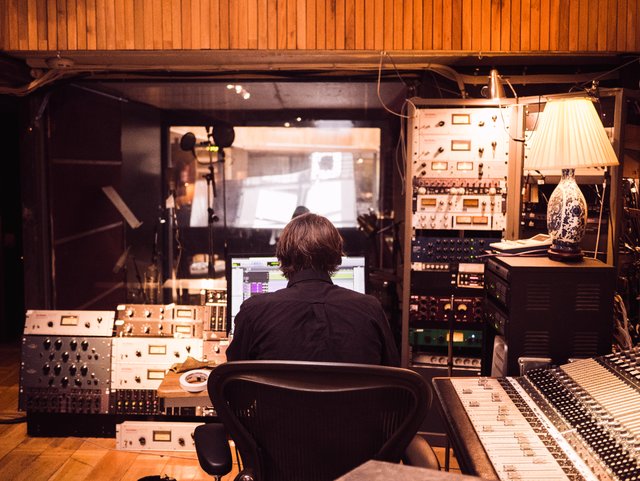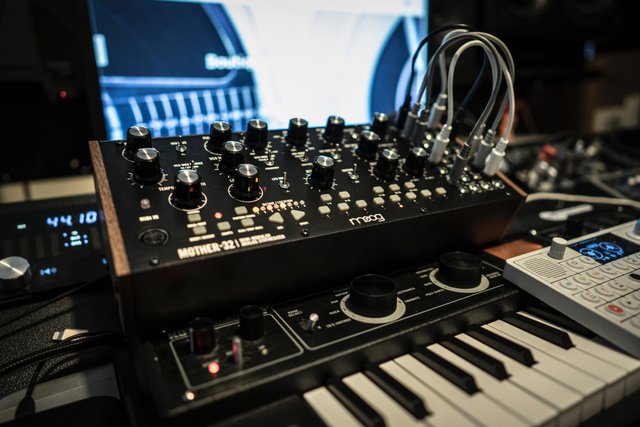THE MODERN DAY MUSIC PRODUCER

source
Although the ultimate objective of music production is to bring out a commercially acceptable and successful project at the right budget, it is a fact that the modern day music producer requires a significantly different range of skills compared to the olden days music producer. By olden days I mean the 60’s. Although I wasn't born in the 60’s or even “time traveled” to that era, I have read numerous articles about their mode of operations in approaches to music production.
I have read that in the early days of music recording, the entire process was a very formal one despite the flamboyant lifestyle that was associated with music over the past few decades. I have also learned that the first records ever made were in mono with very simple recording techniques used to record live performances and the only tools that were at the sound engineer’s disposal were level faders. The earliest mixers had no EQ and that means that if the sound engineer wanted a different sound, he had to select a different microphone or change the microphone position. Doesn't really sound like fun. And if a more ambient sound was needed, the only option was to use a live room. It is said that it was also quite common for recording studios to build dedicated echo rooms in their basements, these rooms were often large reflective rooms with angled surfaces and tiled floors. A loudspeaker and a microphone would be kept in the room and any sound needing treatment would be sent to that loudspeaker and the microphone would pick it up and this signal picked up by the microphone would be added back to the mix. And that's the same concept we use in adding return and send effects to our audio signals in the modern-day sound recording.
It is also said that in those days, sound engineers and music producers were usually full-time employees of the record company. This arrangement made the same people (sound engineers and producers) work on a wide range of musical styles, which is one of the reasons they were extremely versatile. The job was so formal to the point that the sound engineers wore white lab coats during work hours. The task of music production was often split between the musical director and the music producer. The producer would look after the business part while the music director concentrates on the artistic aspect of the job. Musical arrangement, performance quality and the overall sound of the final product was the sole responsibility of the music director while the producer will ensure that job was completed on time and just the appropriate amount of money was spent.

source
Merging Roles
As pop artists (who often had very little or no musical training) started to write pop songs by themselves as opposed to hiring a trained songwriter, the role of a music producer and music director started to merge. Producers who lacked the musical knowledge of arranging songs hired arrangers. The line that separated the music producer from the music director was now completely erased.
Modern Day Music Producer
In modern-day music production, the producer must not just have a flair for music but for different kinds of music. Knowing the right people (contacts) in the industry is also very important, he must be able to plan and manage finances and most importantly be able to handle people. Having the ears for what will be successful commercially is also an important quality that a modern day music producer needs to possess. The modern-day music producer should also be very conversant with modern music production technology like sequencing, VST(s) and popular programmes like Cubase, Protools, and others.
Job Description
There is no fixed definition, description or job specification as far as modern music production is concerned. Some music producers are good recording engineers while others would hire a recording engineer to handle that aspect of the job. Some are well-trained musicians and good instrumentalists while some are Disc-jockeys. The likes of D.j Khaled and the late Avicci are good examples. The bottom line is always the result and different music producers have different means of achieving this but it does not matter, what matters is that you present a commercially successful and acceptable record.
You don't have to be a musical virtuoso or a tech freak to be a music producer. You just have to know a way to get the job done.
Thanks for reading, hope this made sense.
Reference: The sound on sound book of recording and production techniques
Your post was manually selected and voted for by @illuminati-inc (IINC) with support of @curie. About IINC: here. About Curie: here.
Thank you so very much..
Hello @papaudeme, thank you for sharing this creative work! We just stopped by to say that you've been upvoted by the @creativecrypto magazine. The Creative Crypto is all about art on the blockchain and learning from creatives like you. Looking forward to crossing paths again soon. Steem on!